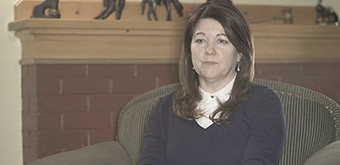Canada News
Can’t always treat everyone the same, commissioner says of straight pride flag

“The raising of a flag apparently in support of all groups in a New Brunswick community had the opposite negative effect,” she said. (File Photo: New Brunswick Human Rights Commission/Website)
CHIPMAN, N.B. — A New Brunswick village’s controversial straight-pride flag shows that we must sometimes go beyond treating everyone the same, the chair of the province’s human rights commission says.
The village of Chipman, N.B., took down the straight-pride flag last week after a single day. Comments had poured in on the village’s Facebook page and elsewhere, criticizing the flag as harmful towards the LGBTQ community.
The man behind the straight-pride flag, retired welder Glenn Bishop, insisted he is not the least bit anti-gay and is simply proud to be straight.
But rights commission chair Nathalie Chiasson said people need to understand the impact of indirect discrimination — when there is an adverse effect on someone even when the original intent may not have been to discriminate.
In a statement on the controversy, she noted heterosexual white men are rarely discriminated against.
“The raising of a flag apparently in support of all groups in a New Brunswick community had the opposite negative effect,” she said.
“What stands out with this flag story is the lack of understanding of the effect of such an action on an already marginalized group of New Brunswick citizens.”
The village had flown the rainbow LGBTQ flag this summer, and Bishop said he had no objections to it. But he wanted to show his own straight pride — he conceived the flag and it was made by a friend, and they went through “the proper procedures” to get it raised by the village.
He said one intention was to signal that the whole village wasn’t gay, and to represent “95 per cent of the population.”
Chipman Mayor Carson Atkinson had helped raise the flag, which shows the symbols for female and male on a field of black and white stripes.
In her statement, released on Friday, Chiasson urged anyone unsure about handling a rights issue to consult the many experts on human rights law in New Brunswick.
“It is an established tenet that sometimes we must go beyond treating everyone the same,” she said.
“If we are to change the narrative about diversity and inclusion, and how we achieve it, we must do so collectively, knowledgeably and respectfully.”
In a statement last week, Chipman’s village council said the flag had been raised as a sign of support for all groups in the community, but it was removed as a result of “unintentional attention,” and based on residents’ feedback.
“This flag distraction is a lesson for us and for other rural communities such as our own,” Atkinson said in a statement. It added “no harm or hate was intended,” and that the village of 1,200 remains “an open welcoming community.”
But Bishop called the flag’s removal discrimination against straight people, and said he and his supporters will meet soon to discuss next steps. He said they could include a court battle or perhaps a challenge at the ballot box in the next municipal election.
Helen Kennedy, executive director of human rights group Egale Canada, said the council’s decision to raise the flag had been “unfortunate and unnecessary.”
She said it likely stems from a lack of understanding of the real symbolism of the pride flag, as well as a lack of understanding about the hardships faced by Canada’s LGBTQ community.





















